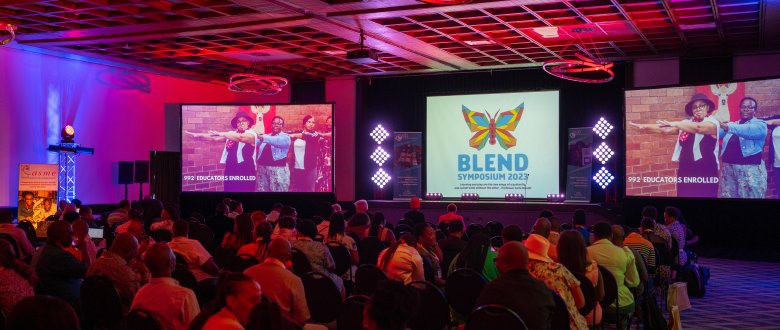
Multilingualism in the Teaching and Learning of Early Grade Mathematics
The panellists for the session represented three distinct but inter-connected perspectives: The KwaZulu-Natal Department of Education (KZNDoE) brought insights on policy and system level challenges and opportunities; the University of the Witwatersrand (WITS) provided insights from the research and the evidence-base; the NGO voice provided perspectives from the field.
The panellists were:
- Dr. Lindiwe Tshuma:
A Teaching and Learning Advisor at WITS’s Faculty of Humanities. Previously she was a Research Fellow in the Curriculum Studies Department of University of Stellenbosch and a Primary Mathematics Specialist at the Schools Enrichment Centre of the African Institute for Mathematical Sciences (AIMS) South Africa.
- Ms Busisiwe Dladla:
Director: Curriculum (Grades 1-9) in the KwaZulu-Natal Department of Education. She serves in different committees at National and Provincial Leve including KZNDoE MECs Rapid Response Team.
- Ms Thami Mahlobo:
A retired teacher who worked as a teacher from 1972 to 1999 and who is currently actively involved in the NGO sector.
The Panel considered:
- The importance of Multilingualism in Early Grade Mathematics
- Multilingualism in early grade mathematics is essential as it enables students to understand mathematical concepts in their mother tongue or the language, they are most proficient in. Research has shown that students learn better when taught in their mother tongue, and this also applies to mathematics.
- The challenges of Multilingualism in Early Grade Mathematics
- One of the main challenges of multilingualism in early grade mathematics is the lack of teaching materials in local languages. This makes it difficult for teachers to teach mathematics in local languages, leading to students struggling to understand mathematical concepts. Another challenge is the lack of trained teachers who can teach mathematics in local languages.
- The strategies for Multilingualism in Early Grade Mathematics
- One strategy for promoting multilingualism in early grade mathematics is to develop teaching materials in local languages. This can be achieved by collaborating with local communities, parents, and teachers to develop teaching materials that reflect local contexts and cultures. Another strategy is to train teachers to teach mathematics in local languages.
Dr Tshuma presented multilinguism as an opportunity to strengthen early grade mathematics teaching. Her presentation was titled: “Language as a resource in Foundation Phase Multilingual Classrooms”. Without denying the complexities of teaching early grade mathematics in multilingual contexts, she presented various practical strategies that can be utilised by teachers in the classroom. Dr Tshuma supported the call for improved continuity between initial teacher preparation at higher education institutions and basic education contexts.
Ms Busisiwe Dladla provided the legislative and policy framework for multilinguism in early grade mathematics teaching. She elaborated on the Language in Education Policy (LiEP) as part of the government's broader strategy facilitating the broader National Languages Plan and responding to the language policy framework of building a non-racial nation. She called on the participants to confront multilinguism head-on but acknowledged that baby-steps will render sustainable results. An important conclusion was that the current legislative and policy environment does not effectively encourage multilinguism in practice.
Ms Thami Mahlobo called on Non-Governmental Organisations (NGOs) to provide sustainable support to schools and teachers. She emphasised the need for good relationships between NGOs and schools. NGOs must be prepared to walk long distance with teachers and provide ongoing support.
Contributions from the audience included:
- There is a need to provide human and physical resources that will support multilinguism in early grade teaching.
- The use of code switching must be formalised in policy. “Policy must catch up with practice”.
- The inclusion of Indigenousness Knowledge should be formalised in teacher development and curriculum.
- There is a need for more standardisation in initial teacher education across universities.
- Establish language units in all provincial education departments.
Key recommendations:
- There is a need to go back to basics. Foundation Phase teachers must be trained in their mother tongue. Student teachers must be trained and assessed in multilinguism.
- The language of teaching and learning must also be the language through which assessment is done.
- Materials must be developed that supports multilinguism in early grade mathematics teaching.
- More research must be done/published in African Languages.
- Initiatives should be introduced to change parental attitudes/perceptions regarding African Languages.
- There must be better alignment in initial teacher preparation between higher education and basic education.
- Policy must catch up with practice.
- Play should be the language that drives early grade mathematics learning.




